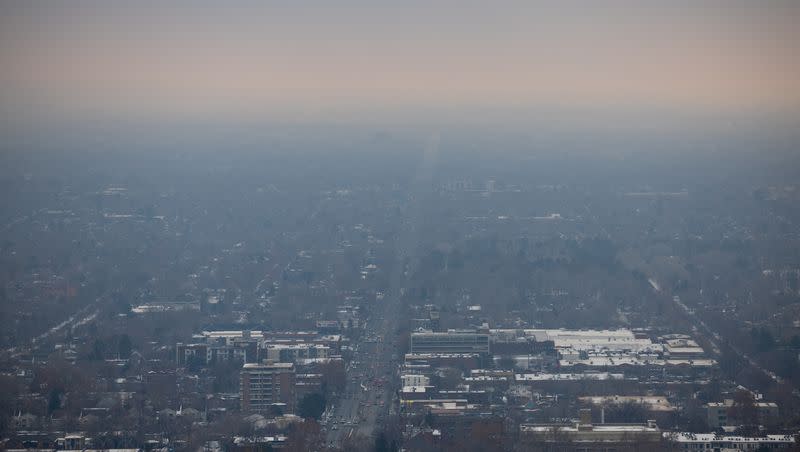Court rejects Utah’s attempt to stop new EPA air pollution rule

- Oops!Something went wrong.Please try again later.
A federal appeals court has sided with the Biden administration after Utah sued over the Environmental Protection Agency’s “good neighbor” rule, which will enforce new regulations on how much air pollution from power plants can flow across state lines.
On Monday, a three-judge panel of the U.S. Court of Appeals for the District of Columbia Circuit declined to stay the rule in a single-page ruling, writing: “Petitioners have not satisfied the stringent requirements.”
The regulation will impact 23 other states. Environmentalists and the Biden administration tout the rule as an important tool in fighting carbon emissions — Utah politicians, including Gov. Spencer Cox, criticized the rule, claiming that it could prematurely phase out the state’s power plants and hurt the economy.
Related
Rich Piatt, a spokesperson for the Utah Attorney General’s Office, said the recent denial to stay the rule will not immediately impact Utah.
“First, the U.S. Court of Appeals for the 10th Circuit has already stayed the EPA’s denial of Utah’s proposed State Implementation Plan and stayed the EPA’s implementation of the Federal Implementation Plan pending Utah’s legal challenges to EPA’s decisions,” Piatt said in an email. “Second, the EPA itself is issuing an interim final rule staying implementation of the FIP.”
The rule directs 23 states, including Utah, to meet the Clean Air Act’s “good neighbor” requirements, according to the EPA. The regulations target ground-level ozone — in Utah specifically, the EPA said nitrogen oxides from oil and gas activity in eastern Utah and power plants in Emery County drift into Colorado where it forms ozone and leads to poor air quality.
“This action will save thousands of lives and result in cleaner air and better health for millions of people living in downwind communities,” the EPA said in a news release.
The Sierra Club and other environmental groups praised the rule, and said it addressed dangerous smog pollution using a combination of approaches proven to limit ozone season emissions of nitrogen oxides, which leads to smog.
According to the Sierra Club, Rocky Mountain Power’s coal-fired Hunter and Huntington plants are some of the worst sources of regional haze pollution in the West.
But Cox, along with a handful of Utah politicians, called the rule “an egregious power grab that harms Utahns.”
“We’re very disappointed in this ozone transfer rule that was released by the (Biden) administration. We are doing energy the right way here in the state of Utah. And that is that we’re working on an all-of-the-above energy policy,” Cox said during the monthly PBS press conference in March.
In a statement, top GOP officials said Utah has “powered decades of prosperity by providing some of the country’s most reliable and affordable energy. This balanced and commonsense approach has powered our state, fueled our economy, and maintained a high quality of life for Utahns.”
The statement blasts the Biden administration for turning to “executive rulemaking to enact policies that will force early closures of Utah power plants, putting reliable, affordable, and dispatchable power significantly at risk — and only in a few years.”
The plan was issued on March 15, and Utah sued on June 20.

